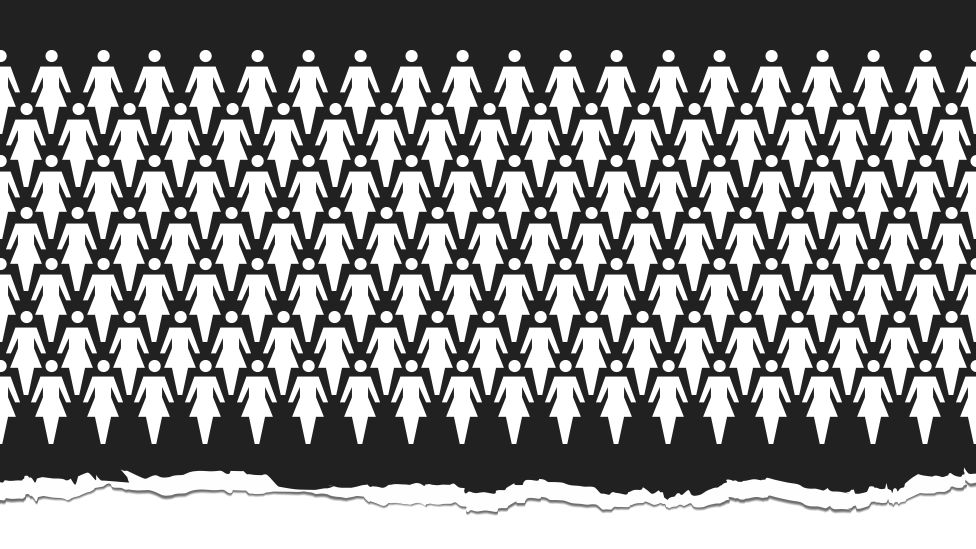'No place for a mother': S. Korea battles to raise birth rate
Seoul (AFP) - When Ashley Park started her marketing job at a Seoul drugmaker she had a near-perfect college record, flawless1 English, and got on2 well with her colleagues -- none of which mattered to her employer once she fell pregnant.
에슐리 박이 서울의 제약회사에 마케팅 일을 할 때, 그녀는 거의 완벽한 대학 성적과 흠 없는 영어실력, 그리고 동료와의 관계도 좋았다. 그녀가 임신 했을 때 그녀의 고용주는 어떤것도 신경쓰지 않았다.
Nine months after she joined, Park said, "They said to my face that there is no place in the company for a woman with a child, so I needed to quit."
그녀가 합류한지 9개월 후 "그들이 내 면전에 대고 말했어요, 이 회사에 아이가 있는 여자의 자리는 없다고요. 그래서 저는 그만둬야 했죠." 박씨는 말했다.
All the women working at the firm3 were single or childless, she suddenly realised, and mostly below 40.
그 회사에서 일하는 모든 여성은 싱글이거나 아이가 없었다. 그녀는 갑자기 깨달았다, 그리고 대부분 40대 미만이였다.
Park's case exemplifie4s why so many South Korean women are put off5 marriage and childbirth, pushing the country's birth rate -- one of the world's lowest -- ever further down.
박씨의 사례는 한국의 여성들이 결혼과 출산을 버리고, 이미 최하위인 출산율을 낮추고 있는지 보여주는 예이다.
Earlier this month Seoul announced its latest set of measures to try to stem6 the decline7, but critics say they will have little to no effect in the face of deep-seated underlying8 causes.
이번 달 초 서울시는 출산율 감소의 원인을 찾으려고 한 최근의 조치를 발표하였다, 그러나 도시들은 깊이 자리잡은 기저의 원인에는 효과가 없는 아주 작은 것들을 가질 것이라고 말했다.
Many South Korean firms are reluctant9 to employ mothers, doubting their commitment10 to the company and fearing that they will not put in the long hours that are standard in the country -- as well as11 to avoid paying for their legally-entitled birth leave.
많은 남한의 기업들은 유자녀 여성 고용하기를 꺼린다. 그들의 회사에 대한 헌신을 의심하고 그 나라의 기준 시간인 장 시간의 시간을 할애하지 않을 것에 대하여 두려워한다. 그 뿐만 아니라, 그들의 합법적인 유급 출산 휴가에 월급을 지불 하는 것도 피하려 한다.
When Park refused to quit, her boss relentlessly12 bullied her -- banning her from attending13 business meetings and ignoring her at the office "like I was an invisible ghost" -- and management threatened to fire her husband, who worked at the same company.
박씨가 퇴사 하는 것을 거부 하였을때, 그녀의 상사는 끈질기게 그녀를 괴롭혔다. 그녀가 업무적 미팅에 참석하는 것을 금지하고, 사무실에서 그녀를 무시하였다. "마치 내가 보이지 않는 유령인 것 처럼요" 그리고 사측은 또한 같은 회사에서 일하고 있는 남편을 해고하겠다고 협박 하였다.
After fighting for about six months, she finally relented14 and offered15 her resignation16, giving birth to a daughter a month later. Aside 17from a brief stint at an IT start-up that did not keep its promise of flexible working hours, she has been a stay-at-home mother ever since.
약 6개월 간을 싸운 뒤에야 그녀는 결국에 마음이 누그러들어 사퇴를 지원하였다. 딸을 낳은지 한 달 뒤의 일이었다. 이외에도 아이티 스타트업 기업의 짧은 제한 그 기업은 유연한 업무시간에 대한 약속을 지키지 않았고, 그녀는 그 때 부터 전업 주부로 지내고 있다.
"I studied and worked so hard for years to get a job when youth unemployment was so high, and enjoyed my work so much... and look what happened to me," Park told AFP.
"나는 직업을 얻기 위하여 열심히 공부하고 일하였다. 청년실업률이 정말 높을 때였다, 그리고 나는 나의 일을 정말 즐겼었다. 그리고 나한테 무슨 일이 일어났는지 보라." 박씨가 AFP에 말했다.
Now 27, she has been rejected at several job interviews as soon as she revealed she had a child, and has given up seeking employment, trying to set up her own trading business instead.
그리고 27세인 지금, 그녀는 그녀가 아이가 있다는 것을 밝히자마자 몇개의 면접에서 거절 당했다, 그리고 고용을 찾는 것을 그만두고, 대신에 창업을 준비하고 있다.
"The government kept telling women to have more children... but how, in a country like this?" she asked.
"정부는 계속해서 여성에게 아이를 더 낳으라고 말하고 있다 그러나 이런 나라에서 어떻게 낳겠어요?" 그녀는 반문 했다.
- Working women -
-일하는 여성-
The South's fertility18 rate -- the number of children a woman is expected to have in her lifetime -- fell to 0.95 in the third quarter of 2018, the first time it has dropped below 1 and far short of the 2.1 needed to maintain stability.
남한의 출산 비율-- 한 명의 여성이 낳을 것으로 예상되는 자녀의 수-- 는 2018년 3/4분기 0.95명으로 하락하였다. 1명 이하로 내려간 적은 처음이며 인구 유지수에 해당하는 2.1 명에는 한참 못 미치는 숫자이다.
As a result of the trend, which has been dubbed19 a "birth strike" by women, the population of the world's 11th largest economy, currently 51 million, is expected to start falling in 2028.
여성들에 의해 출산 파업이라고 별명 붙여진 이런 트랜드의 결과로, 현재 5천 1백만명으인 세계 11위 경제국가의 인구는 2018년 부터 하락할 것으로 예상 된다.
Many cite20 reasons ranging21 from the expense of child-rearing, high youth unemployment, long working hours and limited daycare to career setbacks for working mothers.
많이 언급되는 이유들에 범위는 육아비용이 비싼 것부터 청년 층의 비고용, 긴 근무시간, 일하는 엄마들을 위한 한정된 육아시설 의 실패 까지 이른다.
Even if women hold on to their jobs, they bear22 a double burden of carrying out23 the brunt24 of household chores.
만약 여성들이 그들의 직업을 지켜낸다 하더라도, 그들은 집 안 일의 주력으로서 수행하는 것에 대한 부담까지 두배로 부담을 가지고 있다.
Patriarchal values remain deeply ingrained25 in the South: nearly 85 percent of South Korean men back26 the idea of women working, according to a state survey27, but that plummet28s to 47 percent when asked whether they would support their own wives having a job.
한국에는 가부장적 가치가 뿌리 깊게 남아있다. 거의 85퍼센트의 한국 남성은 여성의 사회진출에 대해 지지한다,실태 조사에 따르면, 그러나 그것은 그들의 아내가 직업을 갖는 것에 대하여 지지할 것인지 질문한다면 47퍼센트로 곤두박질 친다.
Employment rates for married men and women are dramatically different -- 82 percent and 53 percent respectively29.
기혼 남성과 여성 사이의 고용 비율은 드라마틱하게 다르다. --각각 82%(남성), 53%(여성)이다.
Now nearly three-quarters of South Korean women aged 20-40 see marriage as unnecessary, an opinion poll30 by a financial magazine and a recruitment website showed. But almost all children in the South are born in wedlock31.
현재 20-40대 한국 여성중 4분의 3정도가 결혼이 불필요하다고 보고있다. 한 경제 잡지에서 한 여로조사와 웹사이트 보충에의하면. 그러나 한국의 대부분의 아이들은 혼인관계 안에서 태어난다.
- 'Harsh conditions' -
-가혹한 환경-
Against that backdrop, the South's government has spent a whopping32 136 trillion won ($121 billion) since 2005 to try to boost the birth rate, mostly through campaigns to encourage more young people to wed33 and reproduce, without success.
이것을 배경으로, 남한 정부는 2005년부터 출생율을 높이기 위해 터무니 없는 136조원을 사용해왔다. 대부분 청년층의 결혼과 재생산을 위한 캠페인을 통해서 사용되었고, 결과는 성공적이지 못했다.
Earlier this month it announced yet another round of measures.
이번 달 초에도 발표 되었으나 비슷한 방법이였다.
They included expanding child subsidies34 of up to 300,000 won ($270) a month, and allowing parents with children younger than eight to work an hour less each day to take care of their offspring35.
그들은 아동수당을 월 30만원까지 늘리는 것을 포함하였다, 그리고 8세 미만의 자녀를 둔 부모가 그들의 자녀를 돌보게 하기 위해 한 시간 적게 일하는 것도 허용 하였다.
More daycare centres and kindergartens will be built, and men will be allowed -- but not obliged36 -- to take 10 days of paid birth leave, up from the current three.
더 많은 어린이집과 유치원이 지어질 것이다, 그리고 남성 또한10일간의 유급 출산 휴가를 가지는 것도 휴가 되었다 현행 3일에서 증가 되었다. -그러나 강제 되는 사항은 아니다-
But many measures were not legally binding and carried no punishment for firms that denied37 their workers the promised benefits, and the package met a disdainful38 response.
그러나 많은 방법들이 법적으로 강제되는 것은 아니고, 회사의 직원들에게 복지를 제공하지 않거나, 경멸적인 대우를 하는것에대해 처벌하는 조항은 없다.
"The government policies are based on this simplistic assumption39 that 'if we give more money, people would have more children'," the Korea Women Workers Association40 said in a statement.
"정부의 정책은 단순한 추정에 기인해서 만들어졌습니다, 만약 우리가 돈을 더준다면 사람들은 아이를 더 낳을것이다'' 한국 여성 노동자 연합이 성명서에서 말했다.
Seoul should first address "relentless41 sexual discrimination at work and the double burden of work and housechores" for women, it added.
서울은 먼저 발표 해야 한다. '직장에서의 성 차별 그리고 가정과 직장에 대한 두배의 부담에 대한 엄격한 조치" 여성을 위하여, 성명서는 덧 붙였다.
The centrist42 Korea Times newspaper also questioned whether such "lacklustre43" state44 policies would bring in real change unless the government tackled45 the real drivers of women shunning46 marriage and childbirth.
중도파 적인 한국 타임즈 신문 또한 질문하였다. 정부가 여성의 결혼 기피와 출산기피의 진정한 원인을 해결하지 않는 이상 '활기없는' 정부정책이 과연 진짜 변화를 불러 일으킬지
"Unless these harsh conditions for women change, no amount of government subsidies will convince women having children is a happy choice."
"여성들이 처한 가혹한 환경이 해결되지 않는다면, 정부가 얼만큼의 보조금을 주더라도 아이를 갖는 것이 행복한 일이라고 여성들을 설득 할 수는 없을 것이다. "
- 흠 없는 [본문으로]
- 잘 해내다 [본문으로]
- 기업, 회사 [본문으로]
- 보여주다/ 시사하다 [본문으로]
- 미루다 버리다 [본문으로]
- 비롯하다 [본문으로]
- 감소하다 [본문으로]
- 기저의 [본문으로]
- 꺼리는 [본문으로]
- 헌신 [본문으로]
- 뿐만 아니라 [본문으로]
- 끈질기게 [본문으로]
- 참석 [본문으로]
- 마음이 풀리다 [본문으로]
- 지원하다 [본문으로]
- 사임 [본문으로]
- 이외에도 [본문으로]
- 출산 [본문으로]
- 불리우다/ 별명붙여지다 [본문으로]
- 예로들다 [본문으로]
- 범위/ ~에 이르다 다다르다 [본문으로]
- 부담하다 [본문으로]
- 수행하다 [본문으로]
- 주력 [본문으로]
- 깊게 베어든 [본문으로]
- 뒷받침하다 [본문으로]
- 실태조사 [본문으로]
- 곤두박질하다 [본문으로]
- 각각 [본문으로]
- 여론조사 [본문으로]
- 혼인 [본문으로]
- 터무니없는 [본문으로]
- 결혼 [본문으로]
- 지원금 [본문으로]
- 자식 [본문으로]
- 강요하다 [본문으로]
- 거부하다 [본문으로]
- 경멸적인 [본문으로]
- 추측 [본문으로]
- 협회 [본문으로]
- 가차없는 [본문으로]
- 중도파에있는 [본문으로]
- 활력없는 [본문으로]
- 정부 [본문으로]
- 해결하다 [본문으로]
- 꺼리다 [본문으로]






















![Image 2. Pumpkin pie filling goes all the way back to the Middle Ages. Photo: Getty Images [click to expand]](https://media.newsela.com/article_media/extra/pumpkinpie2.jpg)









